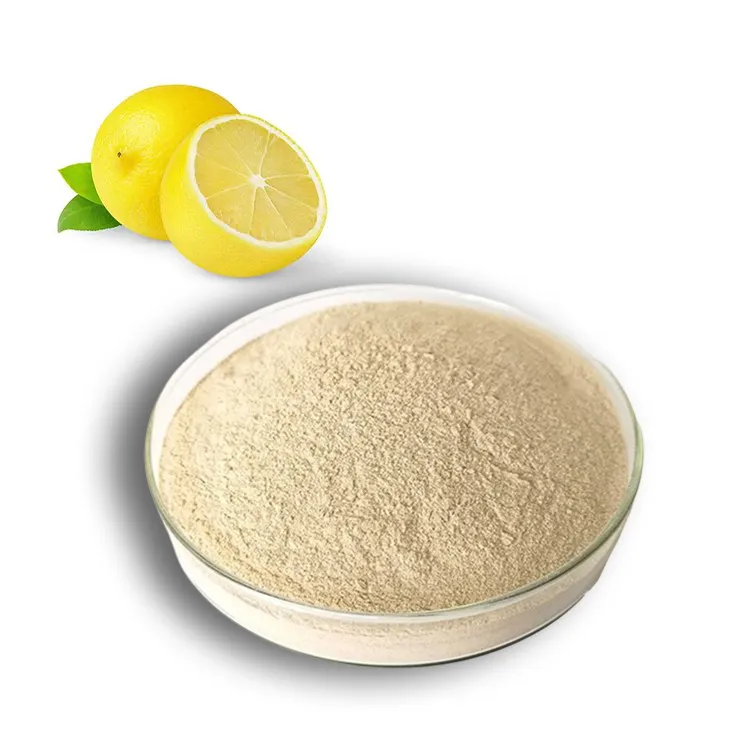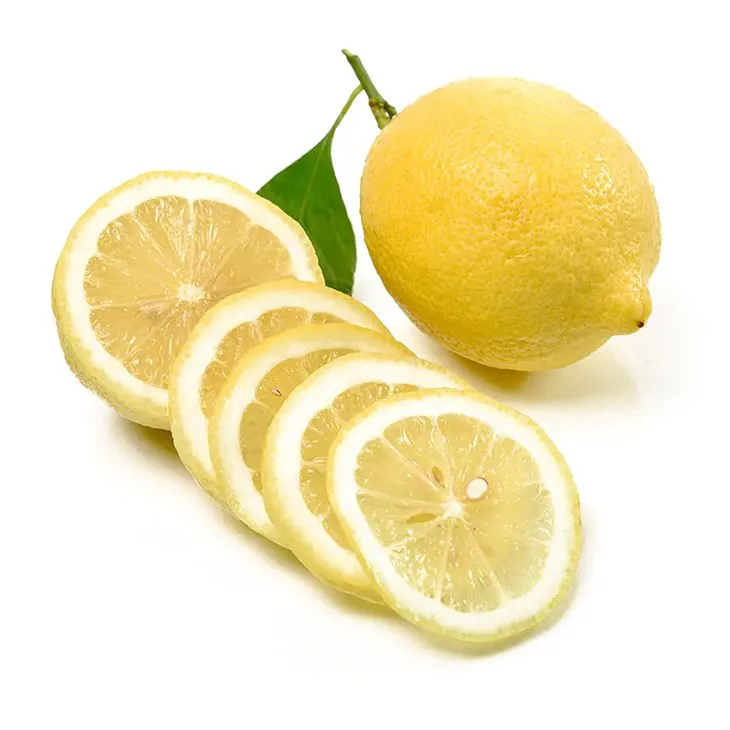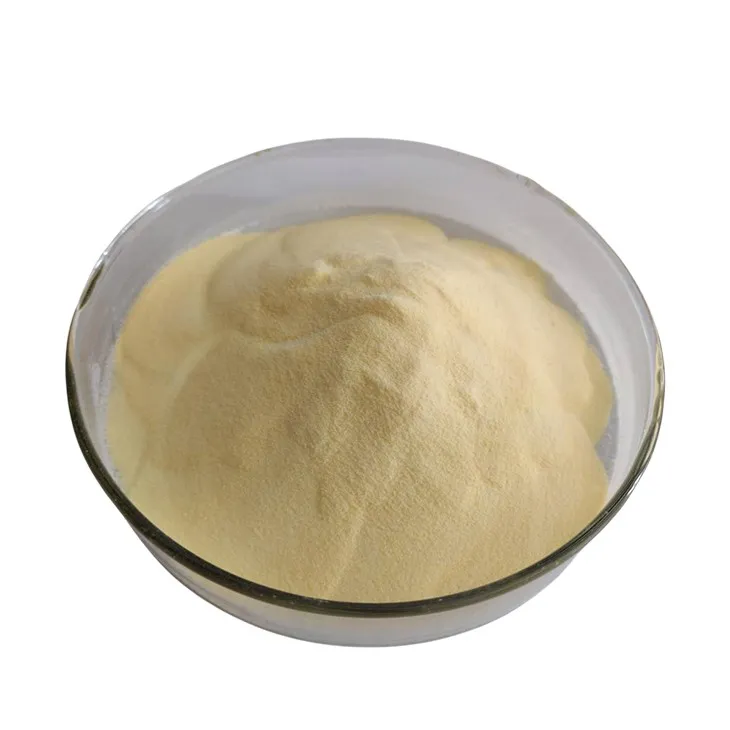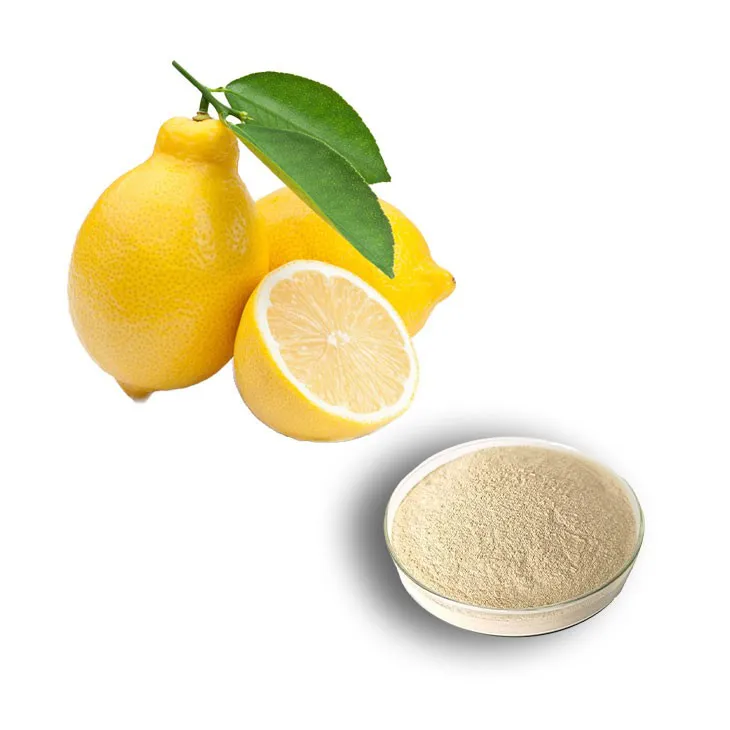- 0086-571-85302990
- sales@greenskybio.com
How to Extract Lemon Extract from Plants?
2024-11-30

1. Introduction
Lemon Extract is highly valued in food, cosmetics, and medicine industries. It imparts a refreshing lemon flavor, contains beneficial substances for skin health in cosmetics, and has potential medicinal properties. The extraction process from plants is crucial to obtain high - quality Lemon Extract. This article will explore in detail the various aspects of extracting Lemon Extract from plants.

2. Selection of Raw Materials
2.1 Types of Lemons
Common lemon varieties are suitable for extraction. For example, the Eureka lemon, which is widely available. It has a high juice content and a characteristic strong lemon flavor. Another variety is the Lisbon lemon. It is known for its relatively thick peel, which may also contribute to the overall extract composition as it contains essential oils. The Meyer lemon, a hybrid, is also a good choice. It has a sweeter and more complex flavor profile compared to other lemons, which can add a unique dimension to the extract.
2.2 Quality of Lemons
When selecting lemons for extraction, quality is of utmost importance. Lemons should be fresh, without any signs of mold or rot. The ripeness of the lemons also affects the extract. Fully ripened lemons generally have a more developed flavor and a higher content of active substances. For instance, unripe lemons may have a lower concentration of essential oils and citric acid, which are important components of the lemon extract.

3. Extraction Methods
3.1 Cold - press Extraction
Cold - press extraction is a popular method as it can preserve the natural components well. This method involves mechanically pressing the lemons without the use of heat.
- First, the lemons are washed thoroughly to remove any dirt or impurities.
- Then, they are cut into halves or quarters, depending on the size of the equipment used for pressing.
- The cut lemons are placed into a cold - press machine. The machine applies pressure to squeeze out the juice and other substances from the lemons.
- The resulting liquid contains not only the juice but also a significant amount of essential oils and other soluble components, which form the basis of the lemon extract.
3.2 Solvent Extraction
Solvent extraction may be more efficient in obtaining certain active substances.
- Common solvents used include ethanol, which is often preferred in the food and cosmetic industries due to its relatively low toxicity and ability to dissolve a wide range of substances.
- The lemons are first prepared by crushing or grinding them into a fine pulp. This increases the surface area available for solvent interaction.
- The solvent is then added to the lemon pulp in a suitable ratio. For example, a ratio of 1:3 (solvent to lemon pulp by volume) may be used, but this can vary depending on the specific requirements.
- The mixture is stirred thoroughly for a certain period, usually several hours, to ensure proper extraction. The stirring helps in bringing the solvent into contact with all parts of the lemon pulp.
- After that, the mixture is filtered to separate the liquid extract (containing the dissolved active substances) from the solid residue. The solvent is then removed, usually through evaporation under reduced pressure to obtain the concentrated lemon extract.

4. Factors Affecting the Quality of the Extract
4.1 Extraction Time
Extraction time plays a significant role in determining the quality of the lemon extract.
- In cold - press extraction, a longer extraction time may not necessarily result in a better - quality extract. Once the maximum amount of juice and essential oils has been squeezed out, further pressing may introduce unwanted substances from the peel or pulp, such as bitter compounds.
- In solvent extraction, insufficient extraction time may lead to incomplete extraction of active substances. For example, if the solvent is not in contact with the lemon pulp for long enough, some of the valuable components like flavonoids may not be fully dissolved. However, if the extraction time is too long, there is a risk of solvent - related degradation of some components or the extraction of unwanted substances.
4.2 Extraction Temperature
Extraction temperature also affects the quality of the extract.
- In cold - press extraction, as the name implies, the process is carried out at a relatively low temperature (room temperature or slightly below). Higher temperatures can cause the degradation of heat - sensitive components, such as some of the volatile essential oils. A change in temperature can also affect the enzymatic activity within the lemon, which may in turn influence the composition of the extract.
- In solvent extraction, while some solvents can be used at slightly elevated temperatures to increase the extraction efficiency, excessive heat can also have negative impacts. For example, high temperatures may cause the solvent to evaporate too quickly, leading to an uneven extraction. It can also cause the degradation of certain components in the lemon, especially those that are thermally unstable.
4.3 Solvent Type
Solvent type is a crucial factor.
- As mentioned before, ethanol is a commonly used solvent. It is relatively safe for use in food and cosmetic applications. However, other solvents such as hexane may be more effective in extracting certain lipid - soluble components. But hexane is not suitable for food - grade extracts due to its potential toxicity.
- Water can also be used as a solvent in some cases, especially for extracting water - soluble components such as citric acid. However, water - based extracts may have a different composition compared to solvent - based extracts, and may not be as effective in extracting some of the more hydrophobic components like essential oils.

5. Conclusion
Extracting lemon extract from plants involves careful consideration of raw material selection, extraction methods, and factors affecting the quality of the extract. The choice of lemon variety and quality is the foundation for obtaining a good - quality extract. Different extraction methods, such as cold - press and solvent extraction, each have their own advantages and limitations. Additionally, factors like extraction time, temperature, and solvent type need to be optimized to ensure the production of a high - quality lemon extract that can meet the requirements of various industries, whether it is for use in food, cosmetics, or medicine.
FAQ:
What are the suitable types of lemons for extraction?
There are several types of lemons that are suitable for extraction. Commonly, the Eureka lemon and the Lisbon lemon are often used. These two types are widely cultivated and have a relatively high content of the substances needed for extraction, such as essential oils and bioactive compounds. They also have a characteristic lemon flavor which is important for lemon extract used in various applications.
What are the advantages of cold - press extraction?
Cold - press extraction has several advantages. Firstly, it can preserve the natural components of the lemon very well. This means that the delicate flavors, essential oils, and other bioactive substances in the lemon are less likely to be damaged or altered during the extraction process. It also avoids the use of high temperatures or harsh chemicals, which can result in a more pure and natural lemon extract. This type of extract is often preferred in the food and cosmetics industries where the natural quality of the ingredient is highly valued.
How does solvent extraction work?
Solvent extraction involves using a solvent to dissolve the desired substances from the lemon plant material. The solvent is chosen based on its ability to selectively dissolve the active substances we want to extract, such as certain essential oils or bioactive compounds. The lemon plant material is soaked in the solvent, and over time, the active substances dissolve into the solvent. Then, through a separation process such as filtration or distillation, the solvent is removed, leaving behind the concentrated lemon extract. However, it is important to choose a safe and appropriate solvent, especially if the extract is intended for use in food or cosmetics.
How does extraction time affect the quality of lemon extract?
The extraction time can have a significant impact on the quality of the lemon extract. If the extraction time is too short, not enough of the desired substances may be extracted, resulting in a less concentrated and less effective extract. On the other hand, if the extraction time is too long, it may lead to the degradation of some of the components, especially the more delicate ones like certain volatile oils. The optimal extraction time depends on the extraction method used, the type of lemon, and the specific substances being targeted for extraction.
How does temperature affect the extraction of lemon extract?
Temperature plays an important role in lemon extract extraction. In cold - press extraction, a relatively low temperature is maintained to preserve the natural components. However, in some solvent extraction methods, a specific temperature range may be required to ensure the solubility of the substances to be extracted. If the temperature is too high, it can cause the degradation of some heat - sensitive components in the lemon, reducing the quality of the extract. If it is too low, the extraction efficiency may be decreased, as the solubility of certain substances may be reduced.
Related literature
- Lemon Extract: Production and Applications in the Food Industry"
- "The Science of Extracting Bioactive Compounds from Lemon Plants"
- "Advances in Solvent - based Extraction of Lemon - Derived Substances"
- ▶ Hesperidin
- ▶ citrus bioflavonoids
- ▶ plant extract
- ▶ lycopene
- ▶ Diosmin
- ▶ Grape seed extract
- ▶ Sea buckthorn Juice Powder
- ▶ Beetroot powder
- ▶ Hops Extract
- ▶ Artichoke Extract
- ▶ Reishi mushroom extract
- ▶ Astaxanthin
- ▶ Green Tea Extract
- ▶ Curcumin Extract
- ▶ Horse Chestnut Extract
- ▶ Other Problems
- ▶ Boswellia Serrata Extract
- ▶ Resveratrol Extract
- ▶ Marigold Extract
- ▶ Grape Leaf Extract
- ▶ blog3
- ▶ blog4
- ▶ blog5
-
The best lemon juice powder in nature.
2024-11-30
-
Organic Vitamin K2 Powder Suppliers
2024-11-30
-
Bulk purchase of L - tyrosine.
2024-11-30
-
Vitamin K2 Manufacturers
2024-11-30
-
100% Pure Natural Rutin.
2024-11-30
-
Chinese Citrus Bioflavonoid Suppliers.
2024-11-30
-
Almond Extract Powder
2024-11-30
-
Scutellaria Extract
2024-11-30
-
Propolis Extract Powder
2024-11-30
-
Artichoke Extract
2024-11-30
-
Avocado Extract Powder
2024-11-30
-
Licorice Root Extract Powder
2024-11-30
-
Acai Berry Extract
2024-11-30
-
Sophora Flavescens Root Extract
2024-11-30
-
Mango flavored powder
2024-11-30
-
Senna Leaf Extract
2024-11-30





















